|
It might be frightening to look at our culture today. There is the sense that a Catholic worldview is not welcome. Some feel confusion about what it means to be Catholic. A culture of death and darkness seems to oppose God’s love. One wonders how the Holy Spirit will work in the world and through the Church amidst such hostility and division. This is not the first time the Church has encountered such a moment. The 1500s were also a tumultuous era. At the beginning of the century, in, 1517, the Protestant Reformation started. Then the English Reformation of Henry VIII began in 1534. The Church responded with the Counter-Reformation. A new order, the Jesuits, was founded in 1540 and in 1545, the Council of Trent was initiated. By that time, millions of people had left the Catholic Church. It seemed to be a time of waywardness and chaos. How was the Holy Spirit going to work in such a world? Simple: By sending the Mother of God not to the Old World—Europe—but to the New World. Specifically, Mary appeared at the Hill of Tepeyac in 1531 to ask a 57-year-old peasant named Juan Diego to speak to Bishop Zumarraga about building a chapel in her honor there. This is where Our Lady, on December 9th, made her first apparition to her “Juanito” or “dear little Juan.” She told him that she was “the perfect and ever Virgin Holy Mary, Mother of the God of truth through Whom everything lives, the Lord of all things near us, the Lord of heaven and earth.” On her last visit on December 12th, Mary arranged roses in Juan Diego’s tilma and sent him to the bishop to ask him again to build a shrine to her on that spot. When he opened his tilma to show the bishop the roses, it revealed her image, which can still be seen in the Basilica of Our Lady of Guadalupe in Mexico City. Mary appeared on a hill that was already sacred to the ancient peoples of Mexico as a shrine to a mother goddess. She was dressed as an Aztec princess, pregnant with the God who made us. She spoke to a humble native of the land and called him her “youngest and dearest son.” Before her apparition, approximately 200,000 Native Americans had been baptized. Between the time of her visit to Juan Diego and her message to Bishop Zumarraga and their deaths in the spring of 1548, over 9 million ancestral peoples had received the gift of faith and baptism. In a time of great conflict, colonialization, and racial tension, Mary appeared on this continent to tell Juan Diego, “I am truly your merciful Mother, yours and all the people who live united in this land and of all the other people of different ancestries, my lovers, who love me, those who seek me, those who trust in me.” She is the mother of all the peoples in the land, then and now. She reminds us that what truly defines us is not our status or ancestry, but our membership in the Body of Christ. It can be a struggle to know and act like a member of Christ’s Body when there are so many opposing forces. What does it mean to act like a Christian, vote like a Christian, shop like a Christian, or even speak like a Christian? It means that we take our fears, our sorrows, our hopes, our hurts, and our weeping not to a political party or an outlet mall; but to our Mother, who in turn presents them to her Son. Am I not here, I, who am your Mother? Are you not under my shadow and protection? Am I not the source of your joy? Are you not in the hollow of my mantle, in the crossing of my arms? Do you need anything more? -Our Lady to Juan Diego Question for Reflection: In times of distress, do you turn to Our Lady to bring you closer to Christ?
0 Comments
6/9/2018 An Interview with Fr. General Jacob Nampudakam SAC on the 40th Anniversary of his ConsecrationRead NowFr. Jacob Nampudakam SAC is the Rector General of the Society of the Catholic Apostolate. He was elected in October 2010 and is the first non-European Rector General. This interviewed was conducted by Catholic Apostolate Center Program Associate Julianne Calzonetti in Rome, Italy.
1. Matthew 4:1-3a: Jesus spent 40 days in the dessert: What have been some of your greatest trials in 40 years? Two main trials: First, I am always in favour of life. Following Deuteronomy 30, 19-20, I had to make a choice between blessing or curse, life or death. God challenges us to choose life. In life we find hope; the ability to live in wonder, nurture in love, and not despair. Hence when members show a spirit of defeatism and negativity- without making efforts to create life- it is challenging. Nothing is achieved by being chronically negative. “Rather, the one who loves Christ is full of joy and radiates joy,” as Pope Francis reminds us. Second, when members become instruments of disunity rather than unity; allowing themselves to be guided by worldliness instead of the Spirit. This is the antithesis of Jesus Christ, who tells us that His Kingdom is not of this world. Following anything other than the Spirit will lead to confusion and destruction; a problem which then takes root in the afflicted person’s heart. Thus, internal problems become external situations, which are very difficult to handle. 2. Joshua 5:6 The Israelites walked 40 years in the desert: What has been your greatest moment of trusting the Lord? “Abandon yourself to God,” St. Vincent tells us, “with perfect confidence and do not fear.” In breathing these words, we are graced with the bravery God willingly gives to go forth and proclaim the Gospel to all creation. We can also use such words to explain two of our missions, Peru and Vietnam. If we lived in the world, we would say such ambitions were impossible, as they were taken up by entities with very few members. Yet instead they are flourishing; for in our steadfast courage and faith, the Lord blessed us in a hundredfold. The moral of the story is this: trust the Gospel. Take no purse, no haversack. He is with you. Another element of surprise was my election as Rector General. It’s not easy to break the frontiers and boundaries set by International Congregations, but when the fresh air of the Spirit blows through the windows, thy will be done. 3. Jesus remained on earth 40 days after his Resurrection: What is your hope and mission, father, for the remainder of your term as Rector General, as well as the remainder of your time as Jesus' anointed one on his earthly pilgrimage? First goal: Make our holy founder known and loved by as many as possible; to offer his charism of the Union of the Catholic Apostolate in service of the Church’s mission. Second goal: Give the compass to God, listen to the cries of His people, and “be led forth with peace” (Isaiah 55:12) to the peripheries. May we be the soul that God brings to their feet, so that they may have the life in abundance He has promised. In all my journeys, what my eyes have seen cannot leave me unaffected. But in each, the open wound of my heart remains the same: for the innocent children who are deprived of love, laughter, family, medicine, education… human dignities that no person on this earth should be denied. We all have equal rights for the blessings given to us by the Creator. To live in luxury disregarding the poor around us- like the parable of the rich man and Lazarus- would be the greatest sin of a Christian. We are all poor before God. 4. 40 is seen as a generation in the Bible. What has changed in the Society and Missions? What has been made better/worse? Everything changes. We try to discern and respond to the signs of the times. Yes, the Society has grown. We have reached out to as many as 56 countries around the world. There are about 2400 members in the Society, and then, of course, the entire Pallottine Family. The scenario in the Church and all the religious Congregations is changing; and it’s moving south. Though this makes no difference; I believe it matters little where we are growing or diminishing in any part of the world. The Church is one body of Christ. Through the consecration we make, we become members of the Society. As so often said by me on visitations, we may be Italians, Germans, Polish, Brazilians, Indians etc., but we are all Pallottines, and one family. I do not believe in lamenting over the decline in one part of the world or rejoicing too much about the growth elsewhere. Such things happened in the past and continue to happen today. Tomorrow has not yet come. The Spirit moves where it wills! Success or failure – let history judge us. 5. As this generation ends, God makes another anew, just as the papacy of Francis is evermore on target with the teachings of Pallotti in Gaudete. How will you lead us in following his papal mission? The greatness of any Christian must be measured by his or her fidelity to the life of Jesus as we encounter him in the Gospel. For me, Pope Francis is someone who lives the Gospel in its radicality. The will of God is our sanctification. There are 3 similarities between our holy founder and Francis: 1. The life of Jesus as the fundamental rule of life and apostolate; 2. A poor Church for the poor; 3. Go forth to the peripheries of human life. These three steps are only possible when the first is achieved: Encounter the person of Jesus in the Gospel on a daily basis. 6. India: You are the first non-European Rector General. What have been the changes over 40 years you have seen in your country? While India as a country is slowly coming of age, what strikes me is the tremendous contribution that the minority Church- 2% of the Catholic population- is making to the Universal Church. In our Society- and the Pallottine Family as a whole- the growth in India is tremendous. No doubt, we are not talking about a perfect situation in all areas, just as in any other part of the world. The unique contributions of the Indian Pallottines are most fruitful where we are able to be faithful to our rich, spiritual traditions and work zealously to be instruments of peace and communal harmony. The 58 schools run by the Pallottines, with thousands of teachers and students from all religions, could serve as the best instrument to promote unity and peace in a world divided by religious disharmony. The One Almighty and Loving God is the Creator of every human person created in His own image and likeness. The ability to respect and love every human being, regardless of his nationality, culture or creed, and be able to see the face of God on each person, will make us universal human beings. The future of the Society, the Church, and the world itself will depend much on this ability to go to the most profound ontological and existential level and be universal persons. Building walls is a sign of innate fear and insecurity. Having grown up in a multi-religious context in India, where we played and grew up with Hindu, Muslim and Sikh youngsters, it does not frighten me to deal with one of a different faith. Experiences mould us. Let’s open up as a Society and work for the common good. But firstly, let’s open up our hearts. That is exactly the work of the Holy Spirit; who opened up the newly founded Church on the day of Pentecost. 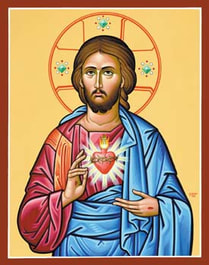 Whenever you think of Christianity, it is next to impossible to overlook the role and importance of love in the story of salvation. God’s love for us is one that is infinitely more enduring than any infatuation or passing attraction. It is one that gives and purifies, sacrifices and yields for the good of another -- again and again and again. God’s love is one that extends through, before, and beyond eternity and is ultimately expressed from Calvary to each and every person, fully, freely, and forever. The Church has dedicated the month of June to a reminder of the depth of God’s love: the devotion to the Sacred Heart of Jesus. In His Most Sacred Heart, we see how absolutely consumed with love God is for us — so much so that He was willing to bear those heinous wounds, false accusations and derisions, and even His death in order to grant salvation for all. Artistic depictions of the Sacred Heart remind us of the torment Christ endured on our behalf: the heart is wrapped in a crown of thorns, pierced, bleeding, and aflame with a cross rising from the tongues of fire. The visible wounds of Christ’s heart reveal His invisible love. Thus, devotion to the Sacred Heart is described as “devotion to the love of Jesus Christ in so far as this love is recalled and symbolically represented to us by His Heart of Flesh.” As creatures that have both soul and body, bodily representations of Christ’s love sometimes touch us in ways that words do not. The Sacred Heart teaches us that authentic love incurs great costs, but it also always gives life. Historically, devotion to the Sacred Heart is believed to have grown from another devotion to Jesus’ body: the Sacred Wounds of Christ from His Passion. Saint Bernard of Clairvaux said that the piercing of Christ’s side revealed His goodness and the charity of His heart for us: “How good and pleasant it is to dwell in the Heart of Jesus! Who is there who does not love a Heart so wounded? Who can refuse a return of love to a Heart so loving?” Other religious and saints, such as Francis of Assisi, have themselves exemplified closeness to the love poured out by Christ’s Five Wounds and Sacred Heart. The devotion as it is most commonly known today is said to have begun with the 1673 appearance of our Lord to St. Margaret Mary Alacoque, a French nun of the Order of the Visitation of Holy Mary. Over a series of visits, Our Lord revealed to St. Margaret Mary the importance of devotion to His Sacred Heart: "Behold the Heart which has so loved men that it has spared nothing, even to exhausting and consuming Itself, in order to testify Its love … But what I feel most keenly is that it is hearts which are consecrated to Me, that treat Me thus. Therefore, I ask of you that the Friday after the Octave of Corpus Christi be set apart for a special Feast to honor My Heart, by communicating on that day, and making reparation to It by a solemn act, in order to make amends for the indignities which It has received during the time It has been exposed on the altars. I promise you that My Heart shall expand Itself to shed in abundance the influence of Its Divine Love upon those who shall thus honor It, and cause It to be honored." In 1856, the Solemnity of the Sacred Heart was officially added to the liturgical calendar — the day before the Memorial of the Immaculate Heart of the Blessed Virgin Mary. The faithful have several options for honoring the Sacred Heart as requested by our Lord:
The Love that Christ continually showers on us should totally consume us. Christ’s death is an infinitely huge debt that we can never repay—but in His infinitely huge capacity to love and be merciful, all our Lord asks in return is our love. As we are invited to share in His Divine Love, we are called to let that love change us to become better disciples and better witnesses. Most of all, let us strive to become authors of great love stories, never ceasing to wonder at the incredible truth that the God of the Universe loves us! The Solemnity of the Most Sacred Heart is also the World Day of Prayer for the Sanctification of Priests. Please pray for the priests in your parish and any other priests who have touched your life! A second wind is often an unexpected gift. Whether it is discovered during a run, study session, or some other activity demanding intense focus and effort, what at first seems daunting and impossible to achieve suddenly becomes possible thanks to newfound strength and endurance. A second wind, while surely appreciated physically or mentally, can also be applied spiritually. As the Church celebrates her birthday on Pentecost Sunday, we can reflect on the incredible gift of the Holy Spirit who was sent by God Himself to provide the fledgling Christian faith a much needed second wind as apostles prepared to bring the Good News of Christ to the entire world.
One of the Gospel readings for Pentecost details our Lord’s promise to send the Holy Spirit to His disciples. In an earlier related chapter from John’s gospel, Christ Himself walks with the disciples and predicts His own Passion. He assures the disciples that they will not be abandoned as orphans, but will share in the very life of the Most Holy Trinity (John 14:15-31)! The consolation and comfort Jesus brought to those gathered in the Upper Room after His death and resurrection surely reminded them of this though He ordered them to not leave Jerusalem until “the promise of the Father” had been sent (John 20:19-23). It would not be until after Christ’s ascension, that the Holy Spirit would be sent upon the disciples and so enable them to carry out the Great Commission of our Lord, “Go therefore and make disciples of all nations, baptizing them in the name of the Father and of the Son and of the Holy Spirit, and teaching them to obey everything that I have commanded you.” While Christ had sent out the disciples to evangelize before (see Luke 10:1-20, cf. Matthew 10), these efforts were limited to “the lost sheep of the house of Israel.” Proselytizing the rest of the world would take place after the rejection of our Lord and would require grace to sustain the disciples through this incredible evangelical endeavor. Today, the faithful are not only entrusted with this mission, but have also been baptized and confirmed with the same Holy Spirit as was promised to Christ’s first followers! The Holy Spirit is truly God and is inseparable from the Father and the Son. Though Christ is seen, it is the Spirit who reveals Him. Thus, both are on a “joint mission” to reveal the visible image of the invisible God (see CCC 689). The Holy Spirit invites us to better know the Father and Son. Each person of the Trinity more fully deepens our understanding of God. As the Catechism says: Now God’s Spirit, who reveals God, makes known to us Christ, his Word, his living Utterance, but the Spirit does not speak of himself. The Spirit who “has spoken through the prophets” makes us hear the Father’s Word, but we do not hear the Spirit himself. We know him only in the movement by which he reveals the Word to us and disposes us to welcome him in faith. The Spirit of truth who “unveils” Christ to us “will not speak on his own.” (CCC 687) The Holy Spirit continuously reveals Christ to us when we make an effort to listen. Similarly, when we recognize and cooperate with the Holy Spirit dwelling within us, we are better able to contemplate Christ’s teachings and the great Mysteries of Faith. When we face discouragement or are unsure of a decision we must make, we are in similar circumstances to those waiting in the Upper Room. The gifts of the Holy Spirit strengthen our faith and helps us to judge our situations prudently. The courage to continue Christ’s mission and not be defeated by discouragement or rejection is not only an incredible witness to the Church, but also a recognition that the Holy Spirit continues to work among us wherever we are in our journey of faith! Just as the Holy Spirit descended upon our Lord at His baptism to start His mission on earth, so too did Christ send the Holy Spirit upon the disciples in the Upper Room as they began their ministry. Like the disciples, let us dare to be open to the Holy Spirit’s activity in our daily lives as a much needed second wind as we continue our Lord’s work so that at the end of our days, we may hear spoken to us, “Well done, my good and faithful servant ... Come, share your master’s joy.” Question for Reflection: Can you recall a moment when the Holy Spirit gave you the courage to continue through a difficult trial? The Easter season is an incredible time of celebration and joy for the Church. Jesus Christ, after being tortured and publicly executed, has resurrected from the dead and restored us to the heavenly communion from which sin had kept us. Death, solitude, and fear no longer have the last word; eternal life for the faithful is no longer impossible thanks to God’s great sacrificial love. And yet, death is still a certainty for each of us. At times, it can be difficult to cope with the death of a loved one, especially if it is unexpected or tragically sudden. How can one reconcile death with the elation with which we celebrate death’s demise at Easter?
I like to recall the words of Reverend Paul Scalia at the funeral Mass of his father, Supreme Court Justice Antonin Scalia: “It is because of [Jesus Christ], because of his life, death and resurrection that we do not mourn as those who have no hope, but in confidence we commend [the deceased] to the mercy of God.” While Christian funerals themselves can be somber occasions, their focus is not on the end of the departed’s life, but rather on the hope of his or her reception of God’s mercy and sharing in the eternal victory of Jesus. This is not to say that grief and other emotions have no place through the final committal—they are very real and should be allowed to fully run their course—but as Christians we unite any sufferings in this life to Christ’s and so recognize their redemptive values and purposes. The annual celebration of Easter, then, recalls the impossible achievement of Christ’s resurrection, “the true hope of the world, the hope that does not disappoint.” As Saint John Paul II quoted St. Augustine, “We are an Easter People and ‘Alleluia’ is our song!” If you look at the Order of Christian Funerals, you can see this hope so wonderfully imbued in the liturgical norms. Always calling to mind the merits and glories of Christ’s Resurrection, the celebrant leads the congregation in recalling the baptismal promises of the deceased: dying to self and the rejection and repentances of sin results in being raised like Christ in the merciful goodness of God on the last day. And it doesn’t end there. As Saint Ambrose preached, “We have loved them during life; let us not abandon them in death, until we have conducted them by our prayers into the house of the Lord.” We should continue to pray for the dead. The Mass, as Reverend Scalia reflected, is the best way of doing this: Jesus Christ is the same, yesterday, today and forever… this is also the structure of the Mass—the greatest prayer we can offer for [the deceased], because it’s not our prayer but the Lord’s. The Mass looks to Jesus yesterday. It reaches into the past— to the Last Supper, to the crucifixion, to the resurrection— and it makes those mysteries and their power present here, on this altar. Jesus himself becomes present here today, under the form of bread and wine, so that we can unite all of our prayers of thanksgiving, sorrow and petition with Christ himself, as an offering to the Father. And all of this, with a view to eternity— stretching towards heaven— where we hope to enjoy that perfect union with God himself and to see [the deceased] again, and with [them] to rejoice in the communion of saints. The Church, has always upheld the merits of praying for the dead, especially for the souls undergoing final purification of venial sins in purgatory. As the Catechism notes, the sacrifice of the Mass transcends time and space to unite the faithful on earth, in Heaven, and those in Purgatory to Christ in Holy Communion (cf. CCC 1391-1396). In praying for the dead, much good can thus be done for them who otherwise might not be remembered beyond the grave! As we continue to praise Christ’s Resurrection at Easter, remember to intercede for those who await being raised up themselves. Just as we implore the saints to pray for us, so too do the souls in purgatory desire to be prayed for as they undergo final preparation for Heaven. Just as the Universal Church links the faithful of God across earth, so too does this Heavenly Communion unite believers in Christ’s love as celebrated at Mass and recalled in His Passion and crucifixion. May the glories of Easter move us to rejoice in God’s eternal victory over the grave and prepare to reunite us to those who have gone before us in Faith. Eternal rest grant unto them, O Lord. And let the perpetual light shine upon them. And may the souls of all the faithful departed, through the mercy of God, rest in peace. Amen. Question for Reflection: Did you know that praying for the dead is considered a spiritual work of mercy? This Sunday's reading from Luke is from one of my favorite passages in the Gospel. We pick up with the two disciples who just encountered Jesus on the road to Emmaus. Whatever business these disciples had out in the countryside, they abandoned their plans after their encounter with Jesus and ran back to Jerusalem to share what had happened. The Gospel says that “While they were still speaking about this, he stood in their midst and said to them, ‘Peace be with you.’” Based on how abruptly Jesus appears to the rest of the disciples, we can imagine that they were incredulous at what Cleopas and his companion were telling them. As with “Doubting Thomas,” it seems that the other disciples also needed to see in order to believe.
It’s interesting to compare the encounter on the road to Emmaus to the interaction that takes place here. When the two disciples met Jesus on the road to Emmaus, they had no idea it was him. He walked with them, developed a rapport with them, and only then did he challenge their worldview and lack of faith in the promises of God. He gently rebuked them, opened up the Scriptures to them, and then broke bread with them. And it wasn’t until that moment that they truly understood who Jesus was and how he fulfilled the Scriptures: “Were not our hearts burning within us while he spoke to us on the way and opened the scriptures to us?” Jesus was patient, meeting them where they were and letting them understand God’s work at their own pace. When Jesus appears to the rest of the disciples, he seems to appear out of nowhere. They all panic and think he’s a ghost until he proves his physical presence to them: he shows them his wounds and even eats something right in front of them. It seems he has the intent of driving the point home, opening their minds to understand the Scriptures. This time, it’s without rebuke, without judgment or frustration. He instead gives the disciples something to look ahead to: “You are witnesses of these things… I am sending the promise of my Father.” He doesn’t just explain the past, but also hints at what’s to come! I love this passage because it speaks loudly to our tendency to not really take matters of faith to heart. And it’s so easy to do. Even for a person of faith, the Passion, death, and Resurrection of Christ can seem completely outrageous! We can be slow to understand God’s plan and actions in the world and in our lives, especially when they are different from our own. Even saints like Mother Teresa experienced doubt at times. But we can take heart in knowing that, when these times of doubt come up, Jesus will make himself known to us in some way, much like he did on the road to Emmaus and in his appearance to the disciples in Jerusalem. He may not be as explicit as we’d expect; it can come through a word from a friend, a kind gesture from a stranger, or even our own actions toward others. God uses all the experiences and encounters in our lives to invite us to encounter him, too. Just like on the way to Emmaus, he walks with us, befriends us, and shows us the truth. Sometimes when we are slow to understand, he acts more directly and obviously in our lives, as he did with the disciples in Jerusalem. As we continue this joyful season of Easter, let us always listen to those times our hearts are burning within us. It is then that God speaks to us most clearly, if only we pay attention to Him. Question for Reflection: How is God walking with you this Easter season? For some, Palm Sunday was a political event surrounding a political person that led to the greatest, most unexpected revolution the world has ever seen happen. Historically, the week leading up to Jesus’ Passion would have been the time of preparation for Passover, when many Jews from all the surrounding villages were in Jerusalem together. The gospels (Mt 21: 1-11) describe Jesus’ triumphant entrance into Jerusalem to the swaying of palm fronds and shouts of “Hosanna!” These were unmistakable prophetic signs of the Messiah-king, the one many Jews expected would finally overthrow their Roman overlords and re-establish Israel’s reign on earth, perhaps even violently—as a group called the “Zealots” expected. Yet there is a further symbol to this story: Jesus riding on a colt or ass, the sign of a humble and meek king. Jesus did not become the king they expected, but instead, the one God wanted. As Pope Francis said in his 2016 homily on the Feast of Christ the King, “The Gospel in fact presents the kingship of Jesus as the culmination of his saving work, and it does so in a surprising way. ‘The Christ of God, the Chosen One, the King’ (Lk 23:35,37) appears without power or glory: he is on the cross, where he seems more to be conquered than conqueror.” Like Jesus’ followers then, today we are susceptible to temptations of limited expectations. It is possible to see Jesus merely as a political and ethical teacher who died a martyr’s death and nothing else. On the other hand, we might project Jesus’ kingdom to a purely “other-worldly” realm. Since Jesus apparently wasn’t setting up his kingdom on earth (so we assume), we are tempted to sanitize Jesus of any “worldly” political or practical implications, and simply assume political engagement has limited place, or even runs counter to our task of evangelization. As Pope Pius XI wrote in his establishment of the Feast of Christ the King, “It would be a grave error…to say that Christ has no authority whatever in civil affairs, since, by virtue of the absolute empire over all creatures committed to him by the Father, all things are in his power…although he himself disdained to possess or to care for earthly goods, he did not, nor does he today, interfere with those who possess them.” Both interpretations—that Jesus was strictly political or that his work was merely “not of this world”—fail to take seriously not only Jesus’ public ministry and preaching, but the truly earth-shattering consequences of Jesus’ kingship won at the cross. The Catechism of the Catholic Church states that Christ, “exercises his kingship by drawing all men to himself through his death and Resurrection.” Jesus’ death and Resurrection are, simply, God’s victory over the world’s powers of sin and death so as to bring about the restoration of God’s people. To say yes to Jesus’ Resurrection is to say yes to life as part of a new creation and kingdom that starts now. Paschal faith involves the risk of making mistakes, being misunderstood or ridiculed, of not conforming to the expectations of the surrounding culture in order to expect something greater. It involves joining in the kingship of Christ in serving others, something we are able to share in as a result of our baptism. As powers of sin and death today loom heavy on our hearts, it is not enough to “have faith” but to do nothing. Following Christ calls us to witness to our faith in practical ways with full conviction because of Christ’s own experience of suffering, death, and Resurrection that has transformed our fundamental orientation to the world. As Christians, we desire peace, healing, reconciliation, and restoration. We serve our King by building up his kingdom on earth. Pope Francis challenges us, “A people who are holy…who have Jesus as their King, are called to follow his way of tangible love; they are called to ask themselves, each one each day: “What does love ask of me, where is it urging me to go? What answer am I giving Jesus with my life?” For more Lenten and Easter resources, please click here. My husband and I lingered in the Church a tad longer than usual the last Sunday of Christmas. We were taking in the beauty of the liturgical season—the lights, trees, colors, the Nativity—ultimately basking in the hope that is born from the Word made Flesh who dwells among us. To be frank, we were also lamenting the season of Ordinary Time that was next, followed by the Lenten Season. We were lamenting the transition from the hope-filled season of Advent into the Lenten journey that leads to Good Friday, where the babe in the manger becomes the suffering servant on the Cross. With Advent lasting for the shortest amount of time this year, and Lent approaching quickly thereafter, I find I am still reflecting on the Mysteries of the prior Christmas season. I suppose I am still sitting in my parish church reflecting on the Wise Men bringing the Child Jesus gifts, reflecting on the idea that a child caused conversion. Highly educated adult men encountered a baby in a stable for animals, and this encounter prompted a change of heart. I would prefer to stay in that time of hope and joy rather than enter into the gore and the sacrifice of the Passion. A few weeks ago, I was reading a reflection in the Magnificat, a daily Mass companion, about the conversion of the Thief on the Cross. The author mentioned that the thief went through a conversion upon encountering the Lord, bloodied, beaten, on the verge of death. The author asks, “What is it that brought the conversion to the thief?” Jesus was in a position of shame, and yet the thief sought repentance and salvation. How could this be? Jesus as the Messiah would have been hard to believe based on His appearance and vulnerability on the Cross, particularly to a thief who had lived a life worthy of crucifixion. Jesus as a child wrapped in swaddling clothes and Jesus on the Cross have the ability and desire to convert souls. Jesus is Lord in every season. He wants our hearts. Christmas seems so beautifully packaged; it can appear that Jesus as a child is sweeter, warmer, more approachable. Yet the story of the Good Thief shows that Christ can also be approachable in his ability to suffer with and for mankind. The thief’s conversion on the cross invites us to approach the bruised and beaten Lord with our own trials and hardships. I was fearful to head into the darkness of Lent, forgetting that Jesus wants to be with us, in His vulnerability, even in our difficult times. Whether we are fleeing suffering, undergoing trial, or in a stagnant time spiritually, we must not put limits on Jesus’ desire for closeness with us, especially as we enter into the season of Lent. If you are struggling with the beginning of the Lenten season, desiring to stay back in the light and joy of the Christmas season like my husband and I, remember that Jesus wants to enter into your Lenten journey, into each season of your life. If you open yourself to him as the Good Thief did on the cross, he can and will grab your attention and be present to you during this season of fasting and preparation. Let us pray for hearts that are open to God’s graces during Lent, open to an encounter and conversion with Christ during every season of the heart. Question for Reflection: Are you struggling to enter into the Lenten season? How can you more deeply invite Christ into your Lenten journey? Click here for resources to accompany you throughout your Lenten journey. As I write this, the weather is gray and cold. It has been raining for what feels like forever, though more accurately it’s been about a week. I miss the summer. I miss a lot of things, and people, when October rolls around. It seems to be a month made for melancholy. Perhaps it is because two of my grandparents died during separate Octobers in my childhood. This month has always been a time of missing them, remembering the past, and grieving. I was eight the October my paternal grandmother died, and she was the dearest person in the world to me. Grief is a word we use to describe the feeling of missing someone or something after they are lost to us forever. We grieve days that are behind us, relationships that never grew, opportunities that we missed. But most of all, we grieve persons. Death seems to be the end of all that is, the end of all who is. It is unbreakable, unbreachable, unending. As Christians, we do not think in those terms because they have been proven false. Jesus Christ, as well as Mother Church, tells us that death is not the end. It is an act of hope to believe this. Death only appears to be final and absolute and unknowable. Through Christ’s resurrection, God has revealed that death is not our final end. It is often hard for us to trust what happens next because we simply cannot know it with the certitude with which we know this world. The Church speaks of the Four Last Things, with Death being the first or entryway to the other three: Judgment, Heaven, and Hell. But that is another topic. What about those of us who remain on earth while a loved one has gone ahead? What do we do? How do we live with loss? C.S. Lewis told a friend who had recently lost his beloved wife, “Sad you must be at present. You can’t develop a false sense of a duty to cling to sadness if– and when, for nature will not preserve any psychological state forever– sadness begins to vanish” (A Severe Mercy, Sheldon Vanauken). Of course we feel sad as a result of someone’s death. A loved one who brought joy and lightness into our hearts has gone, and our sadness is a natural response. There is no Christian commandment forbidding sadness. It is an emotion, which is neither good nor evil. Emotions just are. They come and go, washing over us. If we choose to take them too deeply within ourselves, however, emotions can become dangerous. We can drown in grief, for example, if we make it our cosmology. And the Christian is commanded to have the same mind as Jesus Christ. He sees the world with the eyes of resurrected love. While we may not always be able to choose our emotions, we can choose our attitude and our response to them. Joy, even in the midst of sadness, “comes of being loved” wrote Pope Benedict XVI in Deus Caritas Est. And love has conquered death in a singular act. Jesus, the Christ, the Second Person of the Trinitarian Godhead, the Son of the Father, died on a cross to redeem us from an unredeemable bondage because he loved us and desired us to be with him. It is to that reality that we must orient ourselves. Grief can too easily turn us inward. Like a black hole, it can devour everything surrounding it so that it is the only thing left. Love perpetually calls us out of ourselves, and asks us to give ourselves as a gift, even and especially in the hard times. I do not doubt that God’s heart broke when humanity sinned the first time, and breaks again at every subsequent sin. But God did not become consumed by grief at our fall. God is love, and love gives of itself to the beloved unceasingly. Therefore, God acted in order to redeem mankind. I want to tell you more about the process of grief, of going through the stages of denial, anger, bargaining, depression and, finally, of reaching acceptance, but I don’t know your process. I don’t know your specific loss, which we all must face at various times of our lives. That’s okay. We can hold a space for each other as we go through the process of grieving. We can let each other remember and smile and laugh and cry and long for the missing one, repeating this process as necessary. As a recent homily reminded me, our God does not tolerate idols in our lives. Our grief cannot consume our love, or else it makes a golden calf of our beloved. May our love of God, united with the love our dearly departed, orient us to the loving heart of the Father. May we know that this present sadness is not the end. Question for Reflection: Have you grieved the loss of something in your own life? How has your faith impacted your experience of grief?
On this day we memorialize the death of John the Baptist, the man who introduced Jesus’s ministry to the world and whom Jesus said was the greatest man born among women (Matt 11:11). Yet, despite this accolade from the Son of Man himself, the Gospels tell us that John the Baptist also seems to have wrestled with something that many of us are still wrestling with today: doubt. Yes, even the Baptist, the camel-shirt-wearing, desert dwelling, locust-crunching prophet who calls the crowds that come to him a “brood of vipers,” sat in prison and wondered about whether the “nobody” carpenter from Nazareth was who he said he was.
The Gospels suggest that part of John’s doubt seems to have come from his expectations for Jesus. When John is called by God out of the desert, he announces the coming of the Messiah with metaphors of destruction: “Even now the ax lies at the root of the trees. Therefore every tree that does not bear good fruit will be cut down and thrown into the fire. I am baptizing you with water, for repentance, but the one who is coming after me is mightier than I. I am not worthy to carry his sandals. He will baptize you with the holy Spirit and fire. His winnowing fan is in his hand. He will clear his threshing floor and gather his wheat into his barn, but the chaff he will burn with unquenchable fire.” (Matt 3:10-12) John’s expectation for the Messiah is that he will cleanse through destruction; that he will rid the world of sin, but in a grandiose, violent way. His metaphors and proclamations are laced with references to fire and culling, suggesting that John envisions Jesus the way we tend to envision John—full of passion, intensity, even a little frightening. When Christ comes to John for baptism, Christ does not condemn John’s vision, but rather Jesus’ ministry adds to the story. Rather than cutting the root from the tree, Jesus invites sinners to dine with him. Rather than shaking his fists from the river, Jesus sits on the mountain top and declares the poor blessed. Later, when John is imprisoned for publicly condemning the unlawful marriage of Herod, he receives word of Jesus’ latest miracles: the healing of a Centurion’s slave and raising of a widow’s dead son. The Gospels paint an interesting portrait of John’s response. When John heard in prison of the works of the Messiah, he sent his disciples to him with this question, “Are you the one who is to come, or should we look for another?” (Matt 11:2-3) I can imagine John sitting in the corner of his cell, hearing of these miracles and wondering whether everything he thought about the Carpenter had been wrong. In the darkness of his cell, alone, surely knowing he would soon die, John doubts whether this man who heals is actually the ax he had been expecting. There are two things that stand out about John’s moment of doubt: First, John’s response to his doubt is to go to the source himself. John does not sit frustrated and angry, allowing his doubt to grow into resentment or apathy like so many of us do today. He sends his disciples to Jesus directly. John’s response should serve as a model for our own inquiries. Prayer, direct communication with Christ, is necessary to knowing the truth about his identity. Imagine it in terms of a marriage. What if a husband and wife never communicated with one another when they were concerned with the actions of the other? Not only does a potentially problematic action go unaddressed, but the spouse who desires to know the mind of her lover cannot. She risks constructing a faulty image in her head, one that further drives a wedge between herself and her husband. So too do we drive a wedge between ourselves and the Lord when we doubt and leave those doubts untethered by prayer. When we question Christ, when we question our faith, when we question what is right or how to respond to injustice with charity, we should take those questions to prayer and ask for understanding. We should ask to see God as he truly is, not as we want him to be. The second important thing to note about John’s moment of doubt is Jesus’ response. Matthew reports it this way: Jesus said to them in reply, “Go and tell John what you hear and see: the blind regain their sight, the lame walk, lepers are cleansed, the deaf hear, the dead are raised, and the poor have the good news proclaimed to them. And blessed is the one who takes no offense at me.” As they were going off, Jesus began to speak to the crowds about John, “What did you go out to the desert to see? A reed swayed by the wind? Then what did you go out to see? Someone dressed in fine clothing? Those who wear fine clothing are in royal palaces. Then why did you go out? To see a prophet? Yes, I tell you, and more than a prophet. This is the one about whom it is written: ‘Behold, I am sending my messenger ahead of you; he will prepare your way before you.’ Amen, I say to you, among those born of women there has been none greater than John the Baptist; yet the least in the kingdom of heaven is greater than he. (Matt 11:7-10). In his response to John and the crowds, Jesus first reaffirms his own actions, for these are the actions foretold in Scripture of the coming of the Messiah. He does not answer with words, but with deeds, highlighting the truth that “by their fruit will you know them.” Jesus then also seems to chastise the crowd for their judgment of John. “What did you go out to the desert to see? A reed swayed by the wind?” Jesus says that John’s vision of Christ is admirable, as it comes from place of virtue and strength. Although John initially sees Jesus only through his own eyes, Jesus recognizes that those eyes earnestly desire the truth and have been well formed. Jesus rewards John for his faith, even if it is imperfect. He does not allow John to remain misguided, but he recognizes John’s effort to know Christ as well as he can and rewards him with the accolade “no greater than.” On the memorial of his death, let us try to be a little more like John the Baptist. Let us yearn for the Lord. Let us know him in prayer and the sacraments. Let us have the humility to open ourselves and our expectations to revision. Let us place our doubts before the Cross and allow John’s words to guide our prayers: “He must increase; I must decrease.” Questions for Reflection: How can moments of doubt make your faith stronger? Is Jesus inviting you to “go to the source” – to come to him in prayer? “The priesthood is the love of the heart of Jesus. When you see a priest, think of our Lord Jesus Christ." - St. John Marie Vianney Everything about my experience of Catholicism growing up led me to believe that priests were always kind, middle-aged men who had their act together, but were fairly inaccessible. It seemed that the Church was dying, men were no longer answering the call to the priesthood, and a life of faith had become irrelevant, right? Wrong. My perspective changed freshman year of college at The Catholic University of America. I was astounded to see younger men with collars, and even more astounded to learn that these men, who weren’t much different from me, were willing to give up everything (a family, career, independent life) for the glory of God and the good of His people. As I have come into my own life of faith and started working full-time for the Church, I consider it a great honor to call many of these courageous men my friends. Priests serve as a constant reminder that God, in His goodness, never intended for us to experience life alone. Through their relationships, their witness, and the sacraments, priests prove that God never abandons His people. Simply put, the Church would not exist without the sacraments (the Eucharist, in particular), and the Church could not exist without the priests who bring these sacraments to us each and every day. Over the last several years, as I have seen friends go through seminary and get ordained, I have grown in appreciation of how great their sacrifice is. But more than that, I have also seen how great the reward is when we throw ourselves into our vocation with reckless abandon. I remember distinctly asking one dear friend how he could do it all – leave behind everything that the world tells him he needs in pursuit of a higher calling – and he simply looked me in the eye and said, “Lauren, the Lord makes it easy.” These men have not only been a beautiful witness for the world, but they have radically helped shape the course of my life and my heart. At every major crossroads of a person’s life – birth, marriage, growth of a family, death – a priest is there offering himself and bringing the sacraments. The men in formation for the holy priesthood and the priests who are out in the world “in the trenches” deserve our gratitude and our prayers. The priesthood shows the world that God’s people are worth giving up everything for. So to all of you priests: thank you. Thank you for bringing us the Eucharist. Thank you for answering tear-filled phone calls. Thank you for teaching us how to be good friends. Thank you for showing us the importance of relationships rooted in prayer. Thank you for being our brothers and for personifying our Heavenly Father. But most importantly, thank you for showing us the joy that comes when we fully surrender our lives and our wills to the one who is Love. Question for Reflection : Have you ever experienced the love of Christ through the ministerial priesthood ? To learn more about vocational discernment, please click here. On July 25th, we celebrate the feast day of St. James the Apostle. St. James and his brother John were the sons of Zebedee. Jesus referred to these brothers as the “Sons of Thunder,” most likely due to their penchant for rash, emotional reactions and decisions. St. James teaches us the importance of humility and of promptly responding to God’s call, regardless of the securities we may leave behind in doing so. He was the first apostle to die a martyr’s death. We can look to his zeal for following Christ and his courage in spreading the faith in difficult times as examples for our own spiritual lives. We remember from Scripture that St. James and St. John initially asked Jesus if they could be placed on either side of him in his heavenly kingdom. Jesus uses this as an opportunity to reiterate to the disciples the importance of servant leadership. Jesus responds, “You know that those who are recognized as rulers over the Gentiles lord it over them, and their great ones make their authority over them felt. But it shall not be so among you. Rather, whoever wishes to be great among you will be your servant. Whoever wishes to be first among you will be the slave of all. For the Son of Man did not come to be served but to serve and to give his life as a ransom for many.” (Mark 10:42-45) From this lesson and Jesus’ previous parable of The Workers in the Vineyard (Matthew 20:1-16), we learn that the faithful are invited to receive the ultimate reward of eternal life with our Father in heaven. Jesus reminds us that we shouldn’t get caught up in the earthly understanding of rankings, but can all share in the glory of God in heaven. We also learn from this example with St. James and St. John that serving others is how we are called to love our neighbors. As 1 Corinthians 13:3 says, “If I give away everything I own, and if I hand my body over so that I may boast but do not have love, I gain nothing.” Jesus asks us to rely on him and not on others’ recognition of our sacrifices. In the New Testament, we often hear of St. James mentioned with Sts. John and Peter. These three disciples were privileged to be present at many of the significant moments in Jesus’ ministry on earth, including the Transfiguration and Agony in the Garden. The Holy Spirit’s presence within the apostles at Pentecost was a turning point for St. James and the other disciples because it showed them the true nature of Jesus’ mission and the meaning of his sacrifice on the cross (Benedict XVI, General Audience, June 21, 2006). From there, James and the other apostles went out to all the nations, preaching Jesus and his Gospel message. James’ life after Pentecost symbolizes the pilgrimage of the Christian journey (Benedict XVI, General Audience, June 21, 2006). His journey is one of the reasons he is considered the patron saint of pilgrim travelers and was recognized as a patron saint of World Youth Day 2016. In fact, the path to Santiago de Compostela, where St. James is buried in northwestern Spain, was one of the most traveled pilgrim routes during Medieval times after Rome and Jerusalem. Many people continue to make this pilgrimage today and to seek the guidance of St. James. We can call upon him to protect us during our journeys and to intercede for us for our personal conversions of heart before, during, and after our travels. We are called to follow Jesus as St. James did, knowing that even through life’s difficulties, we are walking along God’s path for us together with Christ. Through the example of St. James the Apostle, we see that following Jesus can have its difficulties through persecution and other hardships, but that our eternal reward is life in heaven with him. St. James’ story encourages us to leave our comparisons to others behind, fully trust in God, and show enthusiasm for Jesus Christ even when it is difficult. Questions for Reflection: Have you ever embarked on a pilgrimage? How did it deepen your spirituality? What are some ways we might be called to grow in our humility as we practice servant leadership in following Christ? When they had gone ashore, they saw a charcoal fire there, with fish on it, and bread. Jesus said to them, ‘Bring some of the fish that you have just caught . . . Come and have breakfast.’ –John 21: 9-10 Easter is a season of renewal, wonder, and awe. The light of Christ conquers darkness, and new life overcomes sin and death. Hope lives, as Fr. Frank wrote, and “We are called to see with the eyes of faith in Christ.” Excitement wells up in me around this time every year when the world is waking up – new blooms appear on trees and in gardens while the sunlight lasts longer each day. Even more exciting than this change in nature is the joy that comes from the Easter Vigil, when the Church welcomes new members and we renew our baptismal promises. As the earth awakens each spring, this liturgical season also invites us to wake up to Christ’s triumphant love. The Gospel readings following Easter Sunday and the Easter Octave are cherished stories and intimate encounters with Jesus. He appears to his disciples when their eyes are still bleary from what happened on the Cross. He has indeed risen as he said. They are called to see and to not be afraid, to touch his wounds, and to ask him questions. One such story occurs before Jesus asks Peter if he loves him. Jesus first directs the disciples to an overwhelming catch on the Sea of Tiberius after a long night of unsuccessful fishing. Their nets overflow. They do not recognize him at first until this moment. Then, John tells Peter and the others, “It is the Lord.” Peter impetuously jumps out to join Jesus while the others row ashore. Sitting at the charcoal fire with fish and bread, Jesus invites the fishermen to come and eat breakfast. I imagine this moment filled with wonder and awe. The disciples will now be “fishers of men,” following Christ’s example and listening to his voice. In the forty days after his Resurrection, Jesus prepares his disciples for their new life of faith and evangelization. Like a dear friend, he gives them advice, teaches them, and even cooks for them. The meal on the beach must have tasted wonderful! This scene is a gift to the senses, like the coming of springtime and the exuberance of the Easter Vigil. What would it be like to be one of the disciples on that beach at daybreak? The cool breeze and the smell of fire caught up in the air, the morning colors dancing in the sky from the sunrise, the feeling of contentment the disciples must have had after catching so many fish, their weariness from a long night, and the sound of Jesus’ voice giving gentle direction. What would it be like to recall all the times you sat with him, to remember the day of his death, and then be present with him and eat fish and bread? This moment on the beach is an intimate encounter that we are also called to experience after the events of Holy Week and throughout all of our lives. During this fifty-day season, I invite you to listen, to sit, talk, and eat with Jesus on the seashore. Reflection Question: What signs of Easter have you noticed springing up in your life since Holy Week? How will you share and enjoy them with Jesus? As we enter into Holy Week, I invite you to reflect on the week that changed the world as understood in the Christian context: the celebration of the salvific event of the Passion, Death, and Resurrection of our Lord. Let us contemplate that great exemplification of Christianity in the symbol lifted upon Golgotha on Good Friday for the world to gaze upon: the Cross. “Behold the wood of the Cross, on which hung the salvation of the world,” we hear on Good Friday. It’s a strange symbol, isn’t it? An instrument of ignominious death, the Cross is for Christians not a sign of defeat but of certain victory! Rare is the Catholic home or school that does not have at least one prominently displayed in it somewhere—but perhaps rarer still are Catholics who pray while actually holding not a cross, but a crucifix. Upon seeing the Crucifix, however, a person must decide whether to accept Christ’s death— including the truth of all He revealed—or to reject Him. For the faithful, it remains a powerful prayer tool, one that does not require elegant words to be meaningful. In holding a Crucifix, one is offering a very powerful prayer. The Crucifix invites us to more deeply meditate upon the precious wounds of Christ. Indeed, one is reminded of our Lord’s words to St. Thomas, “Put your finger here and see my hands,” while tracing one’s fingers over the tiny replica of His wounded hands, feet, side, and the crown of thorns upon His head. Each of us is called to take up our cross and follow Christ (cf Mt 16:24). Our lives should model the Way of the Cross, which St. Mary Elizabeth Hesselblad hailed as “the most beautiful of all because on this path I have met and known my Lord and Savior.” St. Josemaría Escrivá, however, urges: Don’t drag the Cross... Carry it squarely on your shoulder, because your Cross, if you carry it so, will not be just any Cross: it will be... the Holy Cross. Don’t bear your Cross with resignation: resignation is not a generous word. Love the Cross. When you really love it, your Cross will be... a Cross, without a Cross. And surely you, like Him, will find Mary on the way. (St. Josemaría Escrivá, The Way of the Cross (New York: Scepter, 1990), n.p.) Whenever we are weak, how surely will our Mother at once fly to our aid when we faithfully call upon her name! When bearing our crosses, we may be tempted to cry out, “My God, my God, why have You abandoned me?” This utterance of Christ from the cross, however, was not merely a lamentation but Him offering Psalm 22 to His Father. Let our every word, then, be a prayer, let our every action be an act of faith, our every thought be of kindness, and our every deed, one of love, the same kind offered upon the Cross. And, Pope Francis gently offers, “When everything seems too much, when it seems that the world is crashing down on you, embrace Christ’s Cross, draw close to him, and please, never let go of his hand.” Question for Reflection: How can you pick up your cross more diligently in these last few days of Lent? On November 2nd of each year, Catholics observe The Commemoration of All the Faithful Departed, also known as All Souls Day. We are encouraged to pray for the dead and to remember our loved ones who have gone before us. Our prayers for these souls assist in expediting the “process of purification.” The Church recognizes that few people achieve perfection in this life (after all, we are human!), and therefore, go to the grave with remaining traces of sinfulness; a period of purification is necessary to prepare the soul to join God. The Catechism of the Catholic Church explains, “All who die in God’s grace and friendship, but still imperfectly purified, are indeed assured of their eternal salvation; but after death they undergo purification, so as to achieve the holiness necessary to enter the joy of heaven.” This is called Purgatory. It is important to recognize that Purgatory is not a state of punishment, but rather a cleansing very much like our Baptism. Think of it this way: Purgatory makes the soul perfect forever! Our prayers for the deceased put their souls in the HOV lane to complete purification and unity with God—pretty awesome! In remembering our deceased loved ones on All Souls Day, it is common for people to visit cemeteries and decorate grave-sites. For this reason, this feast day reminds me of my grandfather, Sal, or as I call him, Pa-pa. Pa-pa was not exactly a church-going Catholic until the last year or so of his life, but he religiously honored and prayed for the dead by visiting the cemetery of our relatives and planting flowers, placing wreaths or palm. Today, my mom, her two sisters and their husbands continue Pa-pa’s tradition of visiting the cemetery and decorating the grave-sites of all their loved ones several times throughout the year. I make an effort to join them at least once a year to pay tribute to my relatives and to follow my grandfather’s example of acknowledging those who have gone before us. I will never know why Pa-pa did not attend Mass with my grandmother for much of his adulthood, but something drew him into church towards the end of his life. Perhaps he knew his time was approaching and he found solace with the Lord. This year, I will be praying for all of my deceased loved ones, but I will be thinking especially of my Pa-pa with great hope. Be sure to reflect on the memories of your loved ones. If you can, make some time to visit a cemetery, light a candle and attend Mass this All Souls Day. *This post was originally published here and was used with permission.
|
Details
Archives
July 2024
Categories
All
|
About |
Media |
© COPYRIGHT 2024 | ALL RIGHTS RESERVED

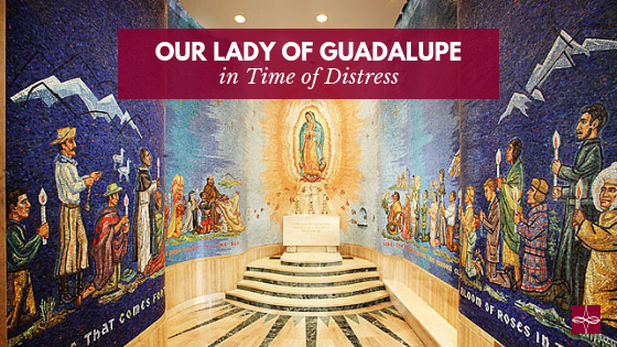

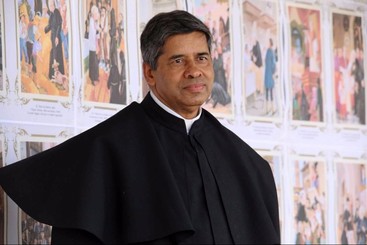
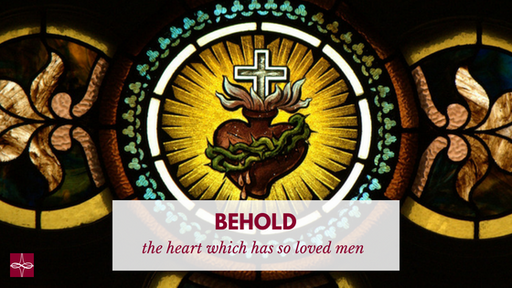

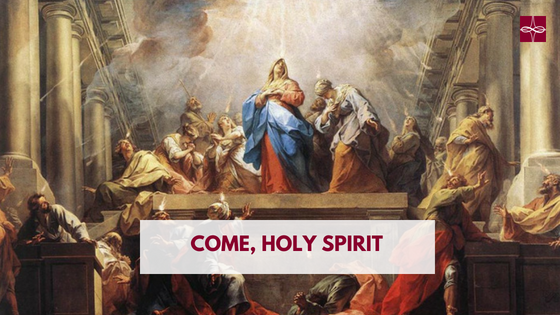

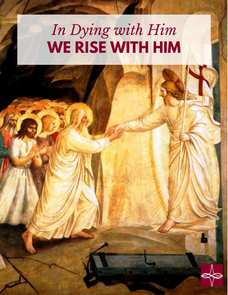

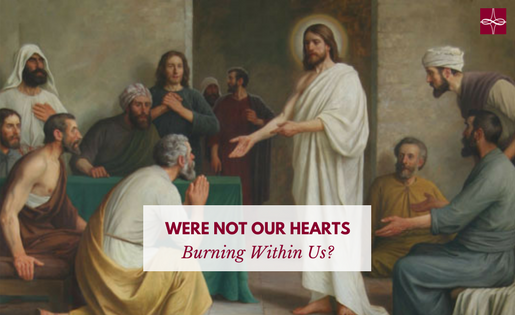

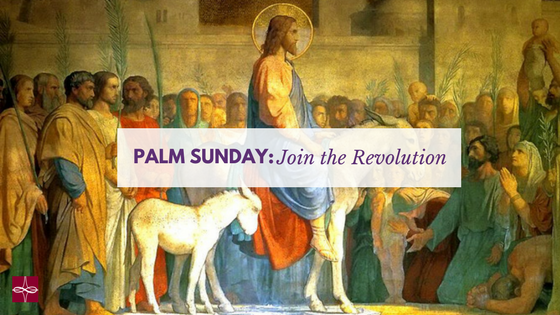

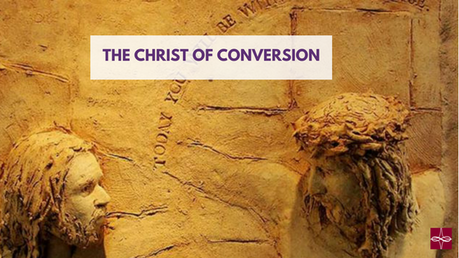



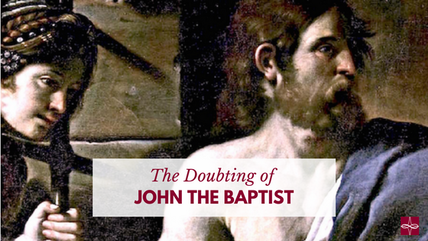

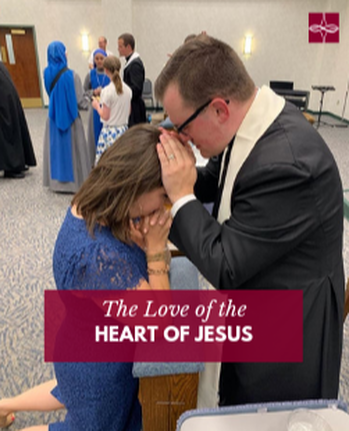

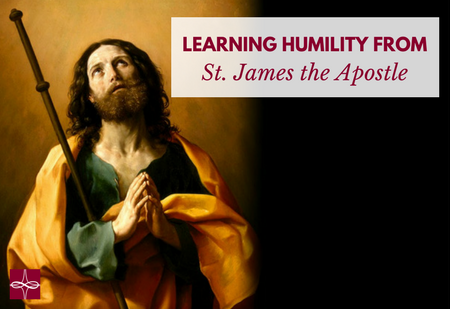

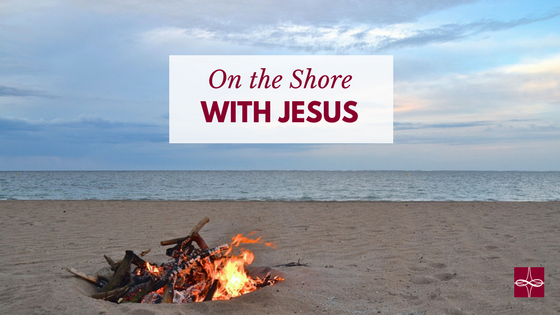

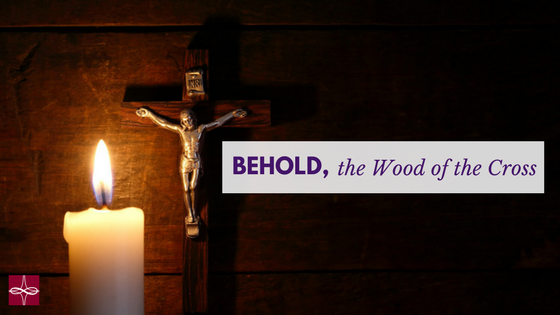

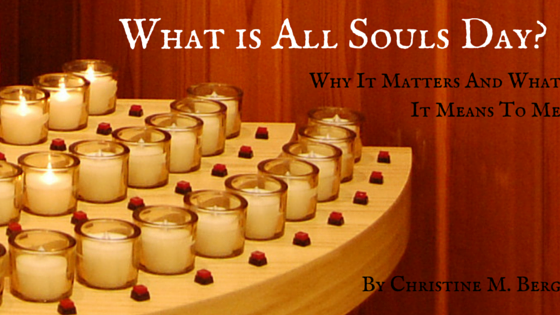

 RSS Feed
RSS Feed